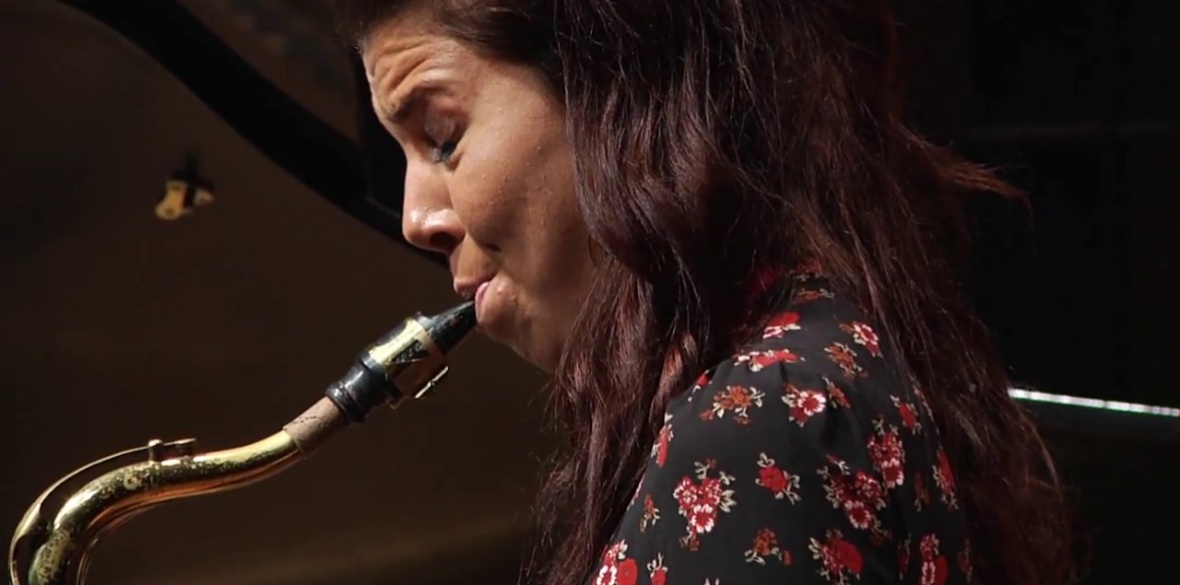This is the last article you can read this month
You can read more article this month
You can read more articles this month
Sorry your limit is up for this month
Reset on:
Please help support the Morning Star by subscribing here
BORN in the Chilean capital Santiago in 1988, Melissa Aldana has saxophone music in her blood.
Both her father and grandfather were eminent Chilean saxophonists and Aldana grew up listening to the records of Sonny Rollins, Charlie Parker and Cannonball Adderley. She took up the horn aged six and by her early teens was already a working musician as a tenor saxophonist.
By 2009, having moved to the US and graduated from top jazz academy Berklee, she won the Thelonious Monk International Jazz Saxophone Award at the age of just 24.
“I just knew at some point I was ready to leave Chile and come to New York,” she tells me. “If I wanted to be the best as a musician and keep learning, New York is the city that pushes you to do that.
“It’s a hard place to live but it keeps you moving and growing. I have the freedom to be myself and do what I love and, thankfully, I get recognition for that — which doesn’t happen to everyone.”
Her quintet now plays around the world but her new album Visions takes her back to her young days in Chile when she was deeply affected by the communist Mexican artist Frida Kahlo.
“Frida to me was an artist who embraced who she was through her art. She talks about beauty, ugliness, being a female, religion, politics, love affairs and sexuality but mostly accepting herself as an individual. This is a big part of how she engendered me to write this music,” she explains.
Her record, she says, reflects Kahlo’s struggles: “The album became a path for my own identity and expression, experimenting both harmonically and rhythmically with moments of frantic movement interspersed with order and structure.
“This is how I conjure the messiness, struggles and heartbreaking contradictions present in those visions of identity and self-worth.”
Her horn sounds create new elements, based on Kahlo’s own visions, which respond to the challenging questions which bubbled up while she was immersed in her paintings. “I felt connected to her personal struggles on an intuitive level — opposing forces in Kahlo’s life that have had a direct impact on my own music, my own self-identity.”
As soon as her album begins, with Sam Harris’s rolling piano, Pablo Menares’s bass, Tommy Crane’s sprinkling drums and Joel Ross’s vibes, you can sense that deep connection with Kahlo in a charged empathy with the Americas.
The track La Madrina is Aldana’s sonic reincarnation of Kahlo’s choice of “either living with inescapable pain due to childhood polio and a horrific bus accident, gangrene and miscarriages or dying and finding peace,” she says.
“To capture the complexity of our life choices, I’ve written layers of tension and resolution into the music. There are tightly arranged sections but also extended improvisation.”
It’s a unique musical excursion into the mind of a sister artist, with Aldana’s beautifully fluid sound sometimes floating, elsewhere delving into the Mexican artist’s consciousness with a keening insight and intimacy.
And it’s an album which shows that Aldana, despite her global achievements, has never artistically left Latin America.
“I usually go back to Chile every year,” she says. “People there are very supportive and proud of me. I have always felt that since day one.”
Visions is released on Motema. Melissa Aldana plays Pizza Express Jazz Club in London on July 9.










